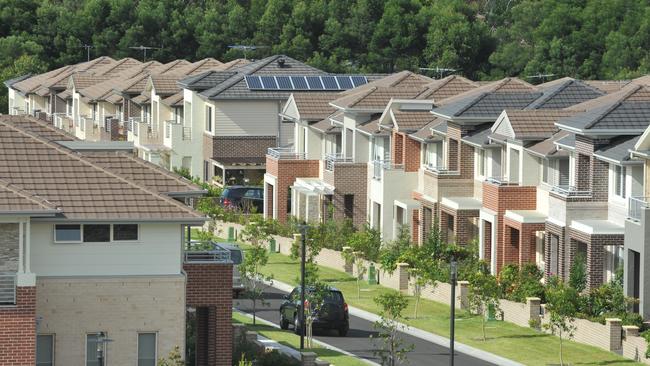AVJennings revenue down, but upbeat about housing market
Home builder AVJennings copped a protest vote against its pay practices but is upbeat about the direction of the housing market.

Home builder AVJennings has copped a protest vote against its pay practices but is upbeat about the direction of the housing market so long as government stimulus packages are extended.
The company avoided a second strike but 18.37 per cent of votes at its AGM were cast against its remuneration report, down from last year when the listed developer copped a first strike when 38.9 per cent of votes were against.
AVJennings’ revenue fell by 11.5 per cent to $262.4m last year, largely due to a fall off in apartment revenues.
Despite the extraordinary challenges from the pandemic, revenue from land and traditional housing increased by 4.9 per cent to $246.4m. Margins increased for land and traditional housing in all states and NZ, with the exception in NSW, where they were hit by some price corrections, plus the relative impact of some projects that yield slightly lower margins.
The company has built up its land bank and now has l12,134 lots including land at Caboolture, Queensland of about 3,500 lots, under an option agreement.
Chairman Simon Cheong praised governments for ensuring the industry remains supported, most notably through the HomeBuilder scheme. “Without these schemes and support, current circumstances would be even more challenging,” he said.
Chief executive Peter Summers pointed to encouraging signs out of Victoria as lockdown restrictions are lifted. “Some easing has started in Melbourne after four months of lockdown,” he said.
He said the pandemic related lockdowns had quietened activity, but sales continued to be made even during lockdowns and inquiries ramped back up very quickly when they were eased. “This all indicates that there is real underlying demand,” Mr Summers said.
“While contract signings in the second half were lower than was anticipated before the onset of the pandemic, they were stronger than we initially expected when the pandemic took hold. As lockdown restrictions eased in June 2020, we saw a return to strong inquiry levels,” he said.
Mr Summers cautioned that challenges exist with unemployment, stifled economic growth and overall consumer confidence challenging buyers.
“It is widely agreed that without government stimulus new residential markets would be under considerable pressure,” he added. Mr Summers said even though stimulus programs such as HomeBuilder do not fully compensate for what would have, barring the pandemic, been a strong market recovery, they have had a strong impact on our economy.
“That existing strong underlying demand needs to be incentivised and supported as this will form the basis of continued activity in new residential markets. That is one reason we would like to see it extended beyond the current end date,” he said.
AVJennings had new net contract signings of 219 for the September quarter, compared to 154 last year.
Looking to future years, Mr Summers said as employment rises and economies gradually recover from the shock of the pandemic, the fundamentals that drove the early stages of the anticipated recovery this year would come to the fore.
“Australia and New Zealand remain great places to live and as both countries re-open their borders, they will no doubt seek to attract new citizens and continue to benefit from our richly diverse cultures and the confidence many will have gained from the handling of the pandemic in Australia and New Zealand,” he said.






